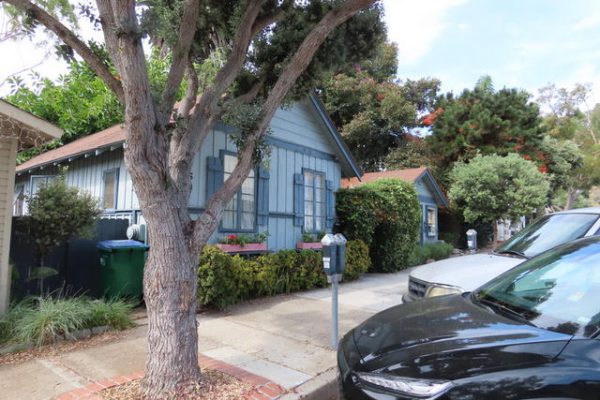
By Bradley Zint, Special to the Independent
Laguna Beach’s long-awaited Historic Preservation Ordinance passed its second reading Tuesday, ending a prolonged process that took five years to get on the books.
The law passed with a 4-1 vote, with Councilwoman Toni Iseman dissenting as she did on its July 14 first reading. The ordinance next requires certification from the California Coastal Commission.
Advocates of the law, which has spurred more than 30 public meetings since 2015 to get to Tuesday’s final step, have long argued that the prior system limited owners’ ability to remodel their properties if they were deemed historic. They pointed to scenarios where owners became “stuck” with some historic designation established decades ago that impeded their desire to fix up their houses.
Proponents also called for making the revised program voluntary, which it now is.
Others argued that easily changing or completely demolishing too much of what makes Laguna unique—particularly its architecturally diverse lineup of charming homes and businesses—will change the city’s historic character and nature.
Another sticking point mentioned Tuesday was that the ordinance got a council-approved exemption from it needing more stringent state law environmental review.
Though Iseman didn’t favor the ordinance, she convinced a majority of the dais to approve a public outreach marketing effort about it. Her motion called for an education program with real estate agents, architects, and others on the benefits of historic properties.
Those can include tax breaks and exemptions from parking and setback requirements.
“I don’t want a black hole where we don’t have someone at [City Hall] who is the expert on what the benefits are,” Iseman said.
Councilman Peter Blake dissented on Iseman’s motion. Earlier in the discussion, he said he assumed people buying seven-figure historic homes have done their due diligence. Those who haven’t would be “foolish” if they didn’t know those properties’ benefits and drawbacks, Blake added.
“That’s not true,” Iseman replied.
Architectural historian Francesca Smith was among the speakers who argued the ordinance needed more environmental review under state law because it has the potential to change the city landscape significantly.
Resident Ann Christoph called the ordinance “a flawed approach” that’s not “ready for prime time.”
Marilyn Alexander, who served on a task force to draft the ordinance, said all of Laguna wants to preserve historic homes, but doing so is better through a voluntary program.
Nevertheless, it has been “a long, arduous process of getting this approved,” she added. “I think this benefits everyone.”
Roy Gallagher agreed.
“We have beaten this horse to death … let’s get it behind us,” he said, adding that the program now respects the rights of property owners.
Councilman Steve Dicterow also favored a distanced approach, saying Laguna residents want small-scale development and charm, just not through heavy-handed City Hall.
“They don’t want to achieve it through [the] government making involuntary programs,” he said.




